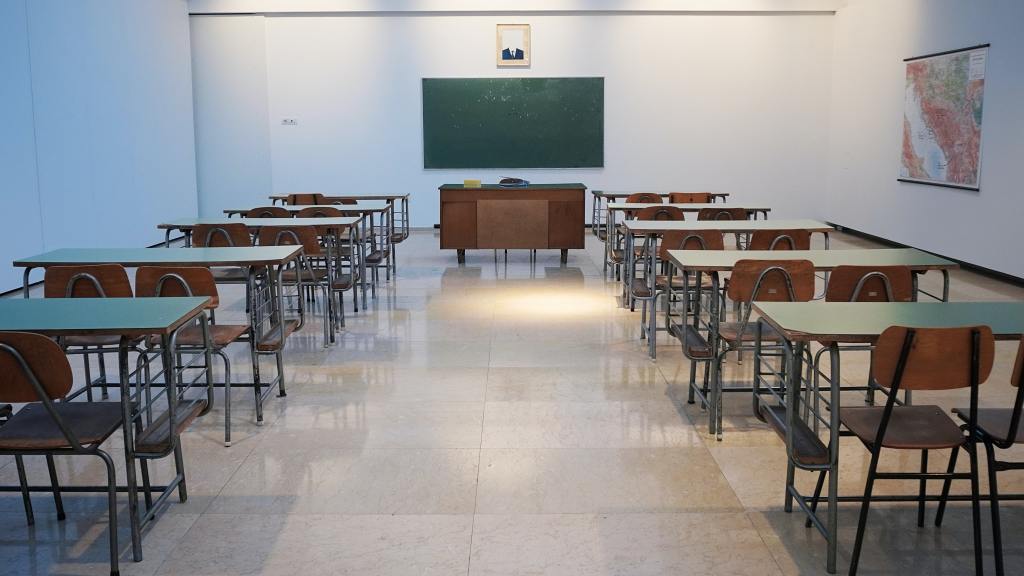After a few chats this weeks about assessment and the disciplines in RE, I’ve been thinking about how we might approach using disciplinary knowledge in the RE curriculum and the teaching of it in RE lessons. (For more on the disciplines in RE and further reading Disciplines: A new direction for assessment in RE?)
In the absence of a National Curriculum for RE to guide the way, the CORE report (2018) proposes that ‘Pupils must be taught:….the different ways in which religion and worldviews can be understood, interpreted and studied, including through a wide range of academic disciplines and through direct encounter and discussion with individuals and communities who hold these worldviews.‘ It suggests … ‘ Religion and Worldviews should enable young people to…develop skills relevant to various disciplinary approaches to Religion and Worldviews, including qualitative and quantitative research skills (at age appropriate levels), philosophical enquiry, hermeneutical approaches to texts, and approaches for understanding the arts, rituals, practices and other forms of expression.”
For many, this is a new way to consider curriculum content and ways of teaching about religion & belief in RE. The inclusion of disciplinary knowledge is relatively new and I’ve seen little about the practical implications on curriculum writing (please do point me to anything!).
In this blog, I’ve decided to present my thoughts in different models, each with a different approach to including the disciplines. For the sake of simplicity I will use Theology, Philosophy and Social Sciences (to include history, geography, sociology etc) as the disciplines that I’m referring to. These are not in a hierarchy of recommendation/best practice but I think they show how the disciplines can be part of the RE curriculum ranging from ‘not at all’ to dominating it.

Model 1 – No discernible disciplinary knowledge
This curriculum model is created using purely substantive knowledge including substantive concepts in what is taught. It does not reference implicitly or explicitly any of the disciplines. It would study everything as facts but without any mention of where they come from and how we know that they are facts. It could include diversity of views but no reference to the root of the differences. In reality this type of curriculum and teaching would be very difficult to do but possible in a short period of time e.g. within a lesson, and may be especially accessible to a teacher that has little background knowledge to address the ‘how do we know this?’ question when looking at substantive knowledge.
In this model it is not possible assess disciplinary knowledge as it doesn’t exist. Progression would purely be shown through accumulation of substantive knowledge.
(I do suspect that some ‘anti’ knowledge-rich people (‘It’s just facts and more facts’) believe that this is what happens in some RE classrooms. I’m really not sure it’s possible though).
Model 2 – Implicit disciplinary knowledge
This curriculum uses the methods (and resources associated with it) of disciplinary knowledge in the curriculum but without any explicit recognition of them with students. The curriculum may be based on a series of enquiry questions that specifically relate to a discipline/s being used which the teacher may be aware of.
An example might be whilst studying the Trinity, students look at the story of Pentecost in the Bible and what the Catechism says about the Trinity and analyses them but without mention that these skills might be used when using a Theological approach. It also wouldn’t be made explicit what the key features of this approach might take e.g. hermeneutical approach thinking about how we read a text. Students are exposed to the methods but there is no requirement to know what they are and how they might differ depending on the discipline.
I think (please correct me if I’m wrong) the Big Ideas for Religious Education follows this model. The website says that the Big Ideas have been derived from disciplinary knowledge ‘The Big Ideas proposed for RE in this project are a product of disciplinary thinking and reflect both the processes of study and some of the key theories to emerge from the disciplines with which RE is most closely associated: religious studies, theology, philosophy, and others drawn from humanities, social sciences and the arts.‘ However, the model doesn’t require students to explicitly learn the names of the disciplines and specific methods and tools as they are embedded in the Big Ideas.
In this model, it might be possible to assess disciplinary knowledge by specifically telling the students to use the methods in a task however it would relate wholly to them recalling substantive knowledge.
I suspect that most RE curricula and teaching of, follows this model, with a mixture of those that are consciously/deliberately doing it and those that are not. We are teaching the disciplinary stuff but we’re not really conscious of it. If you’re at this stage I really recommend taking a look at the ‘Balanced RE’ self audit tool (primary and secondary) to start to think about how your curriculum may or may not use one or more of the disciplines. This is a start to thinking more consciously about how they work.
Model 3 – Explicit disciplinary knowledge modelled
The third model is the same as above however the curriculum and consequent taught lessons makes students aware of the disciplines. There may be an ‘introduction’ to them as a whole and/or individually, and the teacher will mention which discipline/s are being used at any given point. The use of disciplinary knowledge is how the teacher teaches the substantive knowledge.
Progression of learning would come ‘overall’ having been exposed to the disciplines several times over a key stage/s so that student recognise how the teacher dealt with the source from a disciplinary perspective. Students would recognise that they are looking through a specific discipline but would not be expected to know how to do this autonomously. Assessment could over time start to include giving students the chance to use disciplinary skills but it would be over a longer period of time having repeated each discipline several times.

Model 4 – Explicit disciplinary knowledge taught and used (with direction)
This model deliberately plans for both substantive and disciplinary knowledge to be taught and for students to knowingly use the disciplines in their learning. How structured the disciplinary skills are taught can vary.
I suspect that the Ofsted RE research review may be alluding to this type of model when it says “Some curriculum approaches formalise ‘ways of knowing’ into simplified disciplines, such as ‘theology’, ‘philosophy’ and ‘human/social sciences’. In these cases, the curriculum content is framed as if it were considered by, for example, theologians, philosophers or human/social scientists. These can be taught in simplified ways in primary schools.” Begging the question, what is a ‘simplified way’?
I think (although I’m happy to be corrected!) the REToday ‘Challenging knowledge in RE’ series is a basis of this model, although albeit in small topic chunks and not as a planned curriculum. In one example it introduces students to the discipline through an information sheet including an ‘investigator’ in the field, and then teaches substantive knowledge using the discipline and at the end recommends recalling the details of the discipline to review the learning and how it applies to the discipline. This actively involves the students in the discipline but doesn’t require them to practise it independently. Structure and activities are given to explore the discipline.
In a similar way The Norfolk Agreed syllabus may be used to create a curriculum aligned to this model. It says ‘We need to understand which disciplines it draws on in order to understand the object of investigation and the research methods to employ in RE. This ensures that content chosen for RE is appropriate and well-established within academic traditions and ensures that pupils use and develop a range of subject-specific skills.’ (my emphasis). The implication here is that students are able to use the disciplinary knowledge themselves. This comes through a set of disciplinary questions which are interleaved between the disciplines over the key stages. The exemplar curriculum map shows this as one question approached through one discipline although it does say in the guidance it is possible to use more than one discipline.
In this model, progression comes from knowing the substantive but also knowing what the disciplines are and specifically what you ‘do’ when you use each one however with limits on how they can be used independently.. Therefore, assessment would involve testing both. Assessment could assess:
- Substantive knowledge by itself e.g. short qus, multiple choice qus EXAMPLE Name the 3 parts of the Trinity
- Knowledge of the disciplines themselves and how they work EXAMPLE Which discipline would you use if you wanted to find out about beliefs? Which discipline would look at the logic of an argument? What questions would a Theologian ask about this?
- Substantive knowledge through a discipline EXAMPLE Give the Pentecost story and the questions a Theologian would ask and they have to answer them using the substantive knowledge they’ve learned
The key issue with this model is that significant time is spent teaching what the disciplines are and how they work. To what extent does this mean a reduction in the substantive knowledge taught?
Model 5 – Explicit disciplinary knowledge taught and ‘practised’
This model is as above however, the emphasis is that the curriculum is building towards students being able to use the disciplines independently and confidently.
I think that the RE-searchers model (Freathy et al) possibly aims to do this (please do correct me if I’m wrong) at primary level, through a set of characters. Interestingly it uses self-assessment of the key skills for each character to get students to reflect on their performance/confidence/perceptions.
Progression in this model emphasises if students can use the disciplines, ask the questions and apply the methodologies. When assessed this could take the following forms:
- Students ability to use the discipline/s independently on previously used material EXAMPLE Give them a copy of the Bible text of Pentecost (already studied) and get them to use a Theological approach to ask appropriate questions about it and identify key parts of the story that link to the Trinity.
- Students ability to use the taught discipline/s independently on unseen material EXAMPLE Give a survey on belief on the Holy Spirit (previously unseen), using a social science (taught in this topic) approach to ask appropriate questions and analyse the results, linking to beliefs about the Trinity.
- Students ability to use different discipline/s (not used in this topic)independently on previously used material EXAMPLE Having used a theological approach on the story of Pentecost, ask them to use a Philosophical approach, asking the appropriate questions and coming up with answers
- Students ability to use different discipline/s (not used in this topic) independently on unseen material EXAMPLE Give a survey on belief on the Holy Spirit (previously unseen), using a social science (not taught in this topic) approach to ask appropriate questions and analyse the results, linking to beliefs about the Trinity.
As above, a key issue here is how much time should proportionally be spent on learning substantive and disciplinary knowledge?

Model 6 – Teaching disciplinary knowledge through the substantive
This model swaps the main curriculum focus from the substantive to the disciplinary. The curriculum is designed so that students’ core learning is about the disciplines and how they work, approached through substantive content. An example of an enquiry question might be ‘How does using a Theological hermeneutical approach to religious texts help us to understand them more? (using Genesis 1-3.). The overall learning is about how to read texts but it uses an example of the Creation narrative in the Bible to exemplify it. A curriculum would therefore develop over time using disciplinary knowledge and progression would be similar to the above bullet points. Students are ‘becoming’ skilled in the disciplines and that is the key method of assessing progression.
This model leads us to ask the question of how we select the substantive material. Are there certain topics that are more conducive to teaching a discipline? If we’re teaching through the disciplines, does the substantive need to be ‘discernibly ‘religious’? (see an analysis of Jayne Eyre using the disciplines by Georgiou & Wright in ‘Reforming RE’ chapter Disciplinarity, religion and worldviews: making the case for theology, philosophy and human/social sciences’)
This model is problematic as it may marginalise the religious/non-religious substantive content as it would spend significant time on learning how to use ‘tools’ for studying it. The Ofsted RE research review says “Pupils need to acquire these components through typical forms of RE content, which are not separated out from their in-depth context.” which makes me think that this model, in its extreme takes the knowledge out of its context which isn’t desirable.
Discussion
Issues with using the disciplines
What is disciplinary knowledge? From my reading of the disciplines and how people are using them in RE it is still unclear what we mean by disciplinary knowledge in RE. Some have interpreted it as the ‘skills’ that students use in RE, others use ‘procedural knowledge’. Should it be separated from substantive and personal knowledge? And as briefly discussed above, are we introducing students to what each discipline is and its methods and/or getting them to use the methods? The REC Draft handbook suggests ‘For younger age groups, drawing on a variety of methods is sufficient, noting with pupils that different methods handle content in different ways and should be evaluated appropriately‘ and then ‘ As pupils make progress through the school, they should be taught how disciplines construct different types of knowledge. This means that there are particular assumptions behind the various disciplines, and different types of question being addressed within them.’ What might this progression look like? What are the different methods and tools we want students to know about for each discipline? Should we use one discipline at a time or more than one? In case we think we are unique in this, this chapter ( Disciplinary knowledge denied?) is a fascinating read in how similar disciplinary issues arise in History. The term ‘disciplinary-lite’ is interesting here. How might these RE models be ‘disciplinary-lite’? i.e. we teach certain aspects of disciplinarity but not all. This is all another blog post.
Assessment is a huge issue. What does progression mean? What does it mean to ‘get better’ at Theology? There is also a danger of making them into a set of levels for each discipline – would that work if they were specific? The REC draft handbook goes back to a levels system in their 3 models to measure progress and so does the Big Ideas assessment model using Anderson and Krathwohl’s Taxonomy as a basis (with no discernible mention of disciplinary knowledge). Assessment and disciplinary knowledge is also a whole blog in itself.
Using enquiry questions – The Ofsted RE research review suggests that we can use specific disciplinary enquiry questions to approach teaching the disciplines however I feel there is a danger that people might think that they are teaching disciplinary knowledge just through an enquiry question rather than what is then taught and the method/s used. Enquiry questions either need to explicitly lead to the use of one discipline or the answering of the question must include the use of a disciplinary methods. For example, in the Norfolk agreed syllabus the questions are colour coded by discipline but just answering that question doesn’t necessarily mean that disciplinary knowledge is being used. In R Kueh, ‘A matter of discipline? On knowledge, curriculum and the disciplinary in RE’, in ‘Professional Reflection: Theory and Practice’, Volume 37, Issue 1, 2019, pages 55 to 59, Richard clarifies “One might think of the way in which different enquiry questions might instead intrinsically be anchored in disciplinary thinking. For example, ‘how have patterns of religion and belief changed over the last century?’ (drawing on the conventions of the social sciences and history), ‘how valid are arguments for the existence of God?’ (drawing on the traditions of philosophy), ‘how persuasive is the case for secularism?’ (drawing on the social sciences, philosophy and theology), ‘what does it mean to have a worldview?’ (drawing on the traditions of religious studies and the social sciences). Here, the disciplinary tradition sets the boundaries for discussion, the conventions to follow, the rules of the game and the legitimacy of the products of pupil work.” We need to think carefully about enquiry questions and how/if they’re used in the curriculum to ensure they promote the use of disciplinary knowledge not just covering substantive content that is masquerading as disciplinary.
I hope that each model is clear and that as reflective practitioners we can see where we are and where we think we want to go. I’m not sure there is a ‘right’ model but I hope that this blog gets people thinking about what using disciplinary knowledge might look like in our curriculum. We can’t even consider assessment until we’re sure what it is that our curriculum does. It’s a long road!
In his Farmington Institute paper ( Professional Disciplinary Dialogue TT428) Paddy Winter summarises…
“It is worth noting from the outset that a particular joy of disciplinary knowledge discussions is the need for openness to debate, refinement, and development of ideas.“
What do you think?


